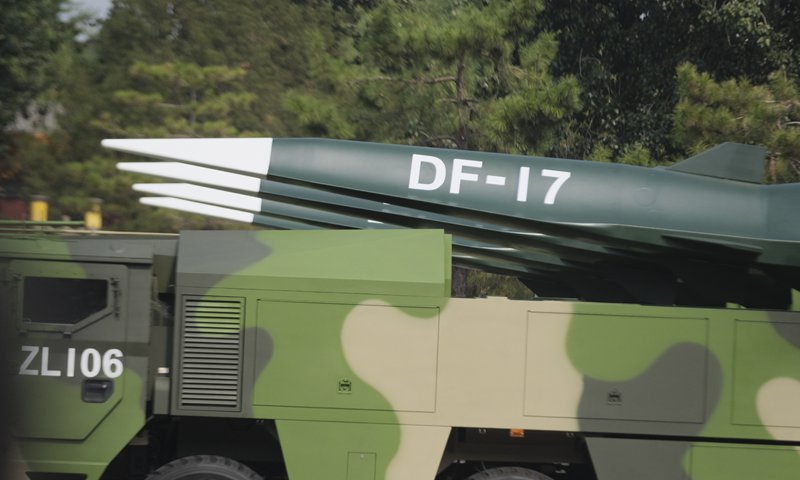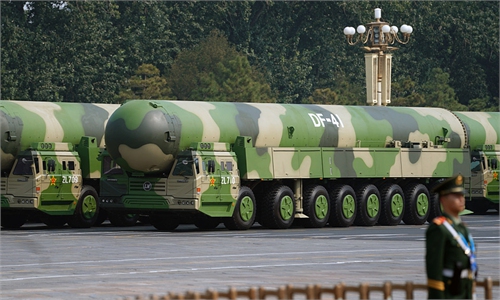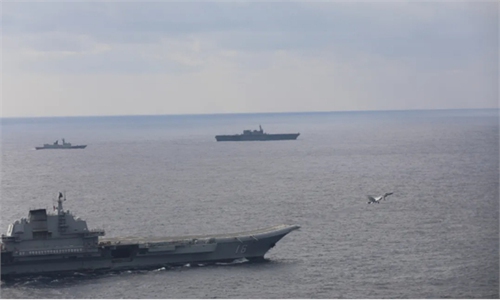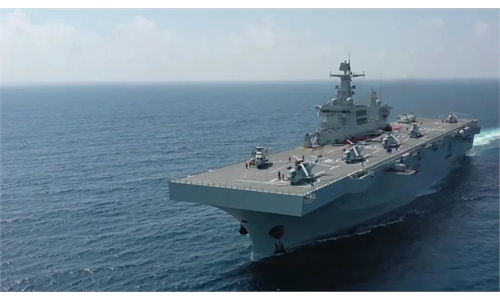China will modernize, not drastically expand, its nuclear arsenal: senior diplomat

Making their public debut, DF-17 missiles join the National Day parade in Beijing on October 1, 2019. Photo: Zhang Haichao/GT
China has no plan to drastically expand its nuclear arsenal but the country will continue to modernize it under the changing security environment, a senior Chinese diplomat said on Tuesday in response to recent foreign reports that have been speculating and hyping China’s nuclear weapon development, including those on the alleged missile silo buildups in Northwest China and the alleged hypersonic tests.
When asked about the topic at a press briefing on Tuesday introducing the joint statement on preventing nuclear war and avoiding arms races issued on Monday by the leaders of five Nuclear-Weapon States, Fu Cong, Director General of the Arms Control Department at China’s Ministry of Foreign Affairs, said that China is not dramatically expanding its nuclear capabilities, since China maintains its nuclear capabilities at the minimum level that is required for national defense.
But it does not mean China is not modernizing, because China has taken measures to modernize its nuclear arsenal for reliability and safety reasons, Fu said.
China also needs to assess the sufficiency of its nuclear forces according to the changing security environment, Fu said, noting that both Trump and Biden regard China as the biggest competitor, and they are using every means to contain China, including planning to spend trillions of dollars in the nuclear field.
The US has also publicly announced that it will deploy ground-based intermediate-range missiles after its withdrawal from the Intermediate-Range Nuclear Forces (INF) Treaty in this part of the world, and it is also building a global missile defense system.
This has changed the security dynamics, so China needs to cope with this and naturally take measures, Fu said.
It means China is improving the quality of its nuclear weapons dynamically with the development of technology, so as to ensure they are accurate, sharp, powerful, and difficult to intercept, Xu Guangyu, Chinese military expert, told the Global Times on Tuesday.
“Otherwise it won't work as a deterrent, so quality is our priority,” Xu said.
About the silos, Fu said he was not in a position to confirm any of the reports, but he does not think it is a serious business to try to calculate the size of the Chinese nuclear forces based on those pictures.
“As in quantity, China has no intention to engage in an arms race, but the specific number of our nuclear weapons is a military secret. The vagueness itself serves deterrent purposes as well,” Xu noted.
When it comes to hypersonic weapons, many countries are developing related capabilities, Fu said.
Citing an article by a well-known US arms control expert, Fu said that Russia and China developed hypersonic weapons because the Bush administration withdrew from the ABM treaty, which limited the missile defense capability of Russia and the US.
Since the defensive capabilities by one side can be developed without restraint, the natural response from the other side is to develop the offensive capabilities. “The US only has itself to blame,” Fu said, noting that this is the importance of adhering to arms control treaties.
That is why, in China’s perspective, the P5 process needs to discuss all issues related to strategic stability, in addition to nukes, Fu said.
“Hypersonic missiles mean faster in speed and greater capability. China does not advocate such weapons and would not use them in general circumstances, but the US’ continued provocations have forced China to think of ways to curb its scrupulous ambitions, and it is beneficial to deterring a nuclear war,” Xu noted.




